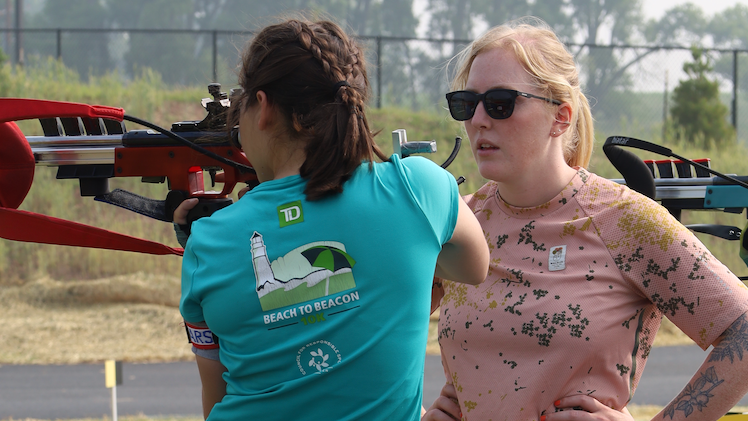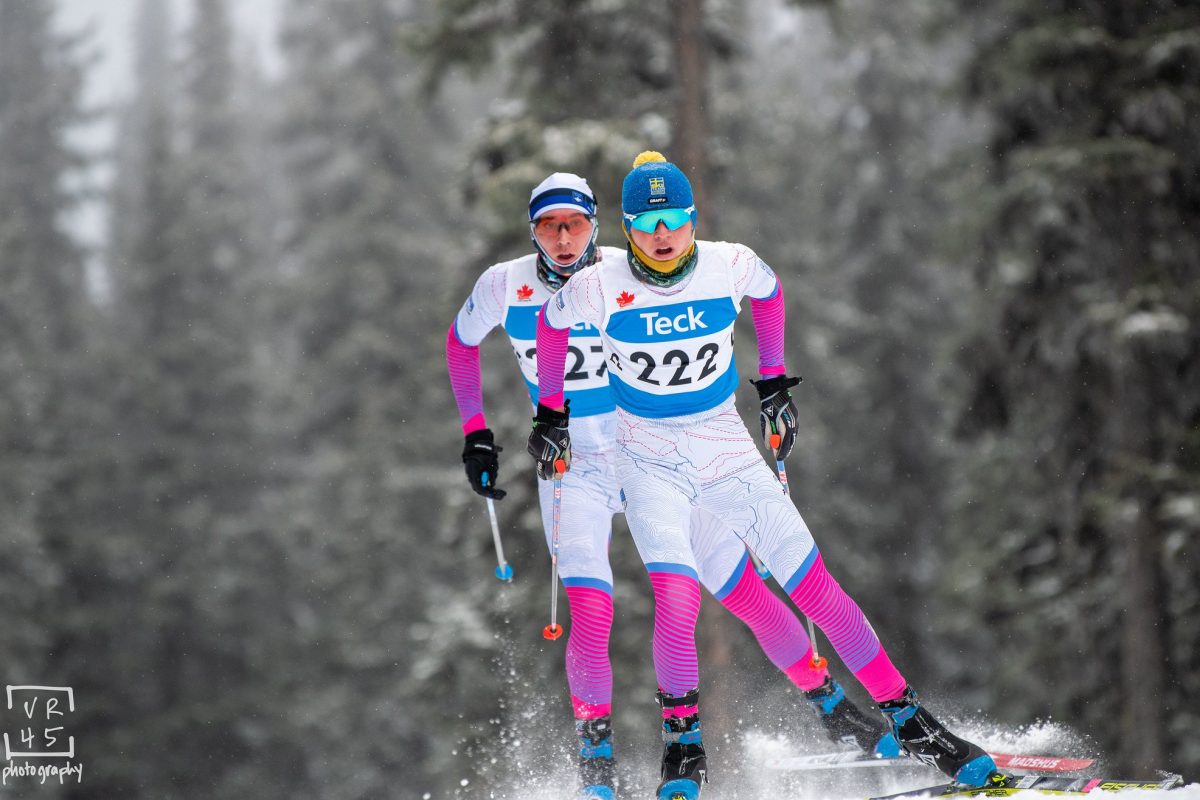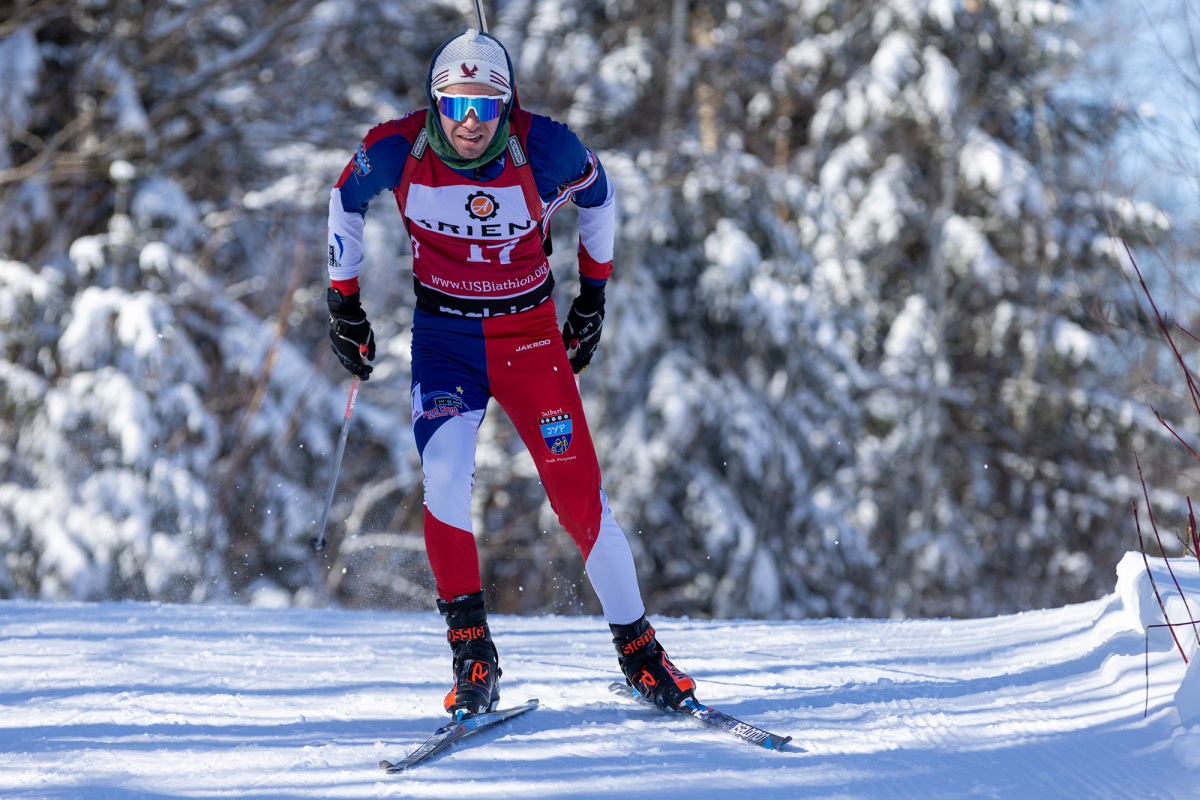After winning the second sprint race of the U.S. Biathlon Association (USBA) selection trials in Canmore, Alberta, on Thursday, Laura Spector seems like almost a lock to join teammate Sara Studebaker, who was pre-qualified, for the first period of World Cups this winter.
Meanwhile, Canada made it two-for-two as Marc-Andre Bedard won the men’s race. The Canadian athletes are not competing for spots on the World Cup, as their selection trials were held earlier this fall on rollerskis, but they filled out the field in the selection races and added a bit of pressure for the Americans. One American man will also be selected for the World Cups, joining Tim Burke, Jeremy Teela, and Leif Nordgren.
As was also the case in Tuesday’s sprint, conditions in Canmore were challenging. A bit more snow fell, so more trails were available for racing, but there still wasn’t enough cover to groom the penalty loop; so once again, penalties were assigned as 23 seconds per missed shot for women and 22 seconds for men. In addition, wind was a factor on the shooting range, and it showed: the women, who had shot well on Tuesday, were more erratic on Thursday.

Spector had the second-fastest ski time of the day behind U.S. teammate Haley Johnson. However, she missed two shots in the prone stage, compared to Johnson’s two in prone and three in standing, which left her alone atop the results. Johnson’s performance on the range dropped her to a disappointing sixth place.
Second place went to Tracy Barnes, who is skiing independently after being cut from the U.S. national team this spring. Her ski time was competitive, but it was her shooting that led her to success: her one miss was the lowest total of the day, even while it still left her twenty seconds behind Spector. Anneliese Cook, also competing independently after being cut from USBA’s development team, took third place.
Aside from Spector, the national team athletes didn’t fare particularly well against their former teammates: Lanny Barnes finished fourth, with one more miss than her sister, followed by Susan Dunklee with three misses and Johnson with five. Maine Winter Sports Center athletes Bethanne Chamberlain and Katrina Howe finished seventh and eighth.
In the biathlon system, selection is based on “percent back”, which is calculated with a formula that takes into account the time of each athlete and compares it to the average time of the top three racers.The best two results from each athlete are used, and as a result, Spector’s two wins all but automatically qualify her, unless another athlete wins by a huge margin in the last race.

In the men’s race, Bedard, like Spector, had the second-best ski time, after Russell Currier of the U.S. team, who had the fastest time for the second straight race. However, Bedard’s one missed shot tied him for the best shooting on the day, and allowed him to take the victory.
Bil Bowler, who was cut along with the rest of the U.S. development team this year, was the only American who could match Bedard’s shooting. He had the third-fastest ski time of the day, and finished second overall, followed by Currier, who missed four shots in the prone stage. As the second American in Tuesday’s race, Currier’s consistency could pay off and earn him a coveted World Cup spot.
Scott Gow of Canada finished fourth, followed by Lowell Bailey and Zach Hall of the U.S. national team.
Trials conclude on Friday with a mass start race. In all likelihood, Spector will be the one to join Studebaker in Europe. On the men’s side, things are more exciting, as almost anyone who has a good race could seize the opportunity to join three athletes who are already training in Sweden.



